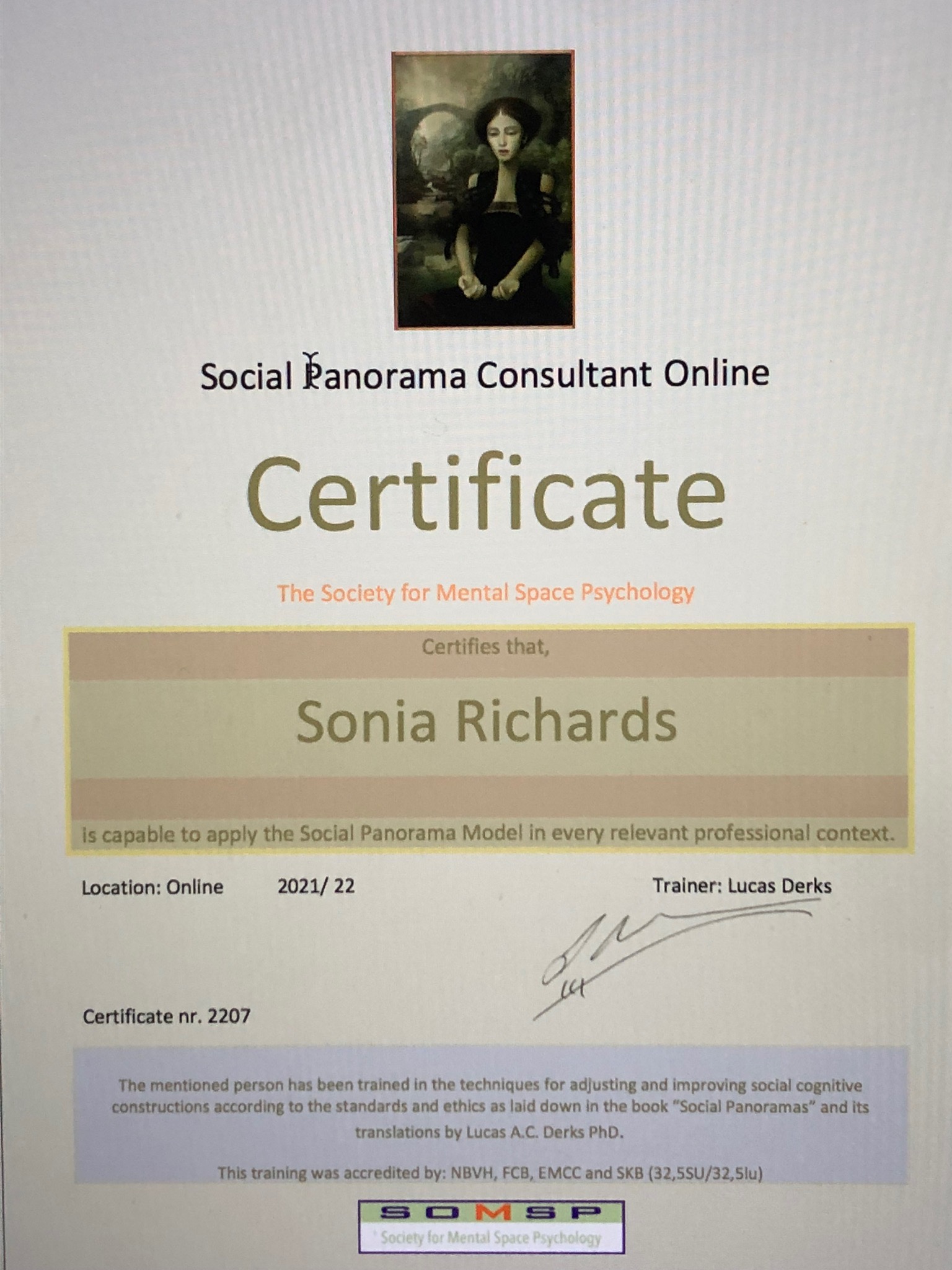| Posted by on 02/03/2022 | 0 Comments |

When you think about a person that you love, you will usually generate a feeling somewhere within your body. Your eyes will generally move around until you locate a representation for that person. Where do your eyes move to? You may even smile when you think of them. Now soften the gaze and think about your personal space, your surrounding landscape or panorama if you will and what position do you imagine or perceive that person occupying within this field?
I’m guessing that the person is located close to you, but this may not be the case depending on your current relationship with them and also wether they are living or not. They could be left, right, directly in front or even behind you at some angle or directly behind, even close behind. They may even be a sense that they are touching or connected in some way. When you perceive this person are they facing you or turned away in another direction. If facing are they at eye level, taller or smaller than you? If you don’t have strong internal imagery you may be able to sense their presence and still have know whether they are near far, facing etc.
Now alternatively, think about somebody you do not like, perhaps who you would even describe as hating. What feelings arise and where about in the body do you feel them. Where do the eyes travel to and what representation comes to mind for this person? What direction are they in and what is the proximity? Chances are they will be further away (but not always). What is the size, what orientation, are they in? Are they facing you or in anther direction? Are they bigger smaller and how near or far are they to your position now?
If you were able to do this short mental exercise was it easy or difficult? Many will find this easy and experience a real sense of knowing where these people are located with reference to themselves.
Social Panorama work was developed by Psychologist Dr Lucas Derks, from the Netherlands. This work reveals the unconscious landscape of images and people that surrounds each of us. It helps us to sense the location of significant others within our mental space, teaches us to reshape our inner worlds and guides us towards the successful recreation of our perspectives on others and ourselves.
These unconscious representations are known as personifications and their relative positions can help or hinder all kinds of relationships. It can even undermine our relationship with our own sense of self, and our own abilities to be independent and successful in the various areas of our lives.
Exploration of these panoramas, with regard to certain situations or with a variety of relationships, can be incredibly useful to help us know where we stand relative to others. Also, what positions are useful to change in order to get the best out of life’s relationships and with our own identity.
Social Panoramas helps people to take up better positions, find common ground when and if required and know when and where to re-position others mentally to give peace of mind and a feeling of freedom. It enables the person to take control and make better decisions for themselves ongoing, by taking some very simple steps for change.
If you would like to find out more and experience some self discovery via Social Panorama work please do get in touch:
I look forward to joining you in a discovery of your inner landscapes to make your outside life experiences happier, more productive and bring a sense of inner contentment.
Recent Client Feedback:
The process helped me to bring deeper understanding of my family dynamic, that "turned me " into the mediator that I became.
As I'm not super visual person, it was surprising how easy it was to feel everyone's place in my panorama.
At the end of the session I felt, more space around me - with Mom not overshadowing me, it was easier to breathe.
I have noticed that it's easier for me not to jump between my older boys to "mediate".
Instead of raising my voice in arguments with them, I have naturally started to lower my voice.
I'm more assertive with my Mom. And my communication with my Dad has somehow changed, I feel more respect, in fact it feels like he sees me - when before I felt overlooked.
It would be interesting to explore my Mom's side of the family too. (I. G.)
|
|
|
|
|
|
|
|
|
|
|
|
|
|
|
|
|
|
|
|
|
|
|
|
|
|
|
|
|